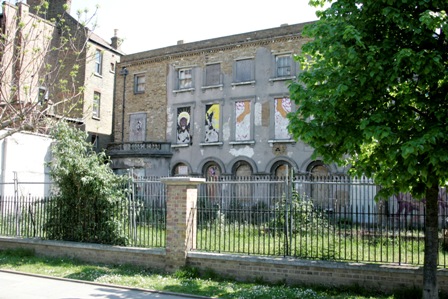
Mayor of London Boris Johnson announced this week that £5 million would be allocated towards a centre for black history in Brixton, but in light of the report by the Equality and Human Rights Commission (EHRC) this week, highlighting the racial inequalities which still exists in British society, will a black cultural centre improve race relations? Is it even a good idea?
When the Mayor of London Boris Johnson announced that £5 million would be allocated to a black cultural centre in Brixton, with the Heritage Lottery Fund contributing £4 million and Lambeth Council providing the rest, this was no doubt seen as a positive step for race relations.
Despite this seemingly kind gesture by Boris Johnson however, this was the same mayor who was criticised earlier this year for axing funding for a number of multicultural events including Black History Month and Africa Day. Why the sudden change of heart? Is it politics? Most likely, because the black community has been let down by British politicians for years. In 2004 Tony Blair failed to organise a single event and hold a memorial day in remembrance of slavery as he had promised before Labour came into power.
The Labour government went even further still stating at the United Nations 2004 anti-slavery year world conference that slavery was legal at the time and therefore not a crime against humanity. What is Boris Johnson’s position on this issue one must ask? In contrast France, not exactly a racially harmonious society passed a law in 2001 recognising slavery as a crime against humanity and declared May 10, as a national day of remembrance for the victims of slavery.
Britain is not as tolerant as is portrayed and with the EHRC’s report this week highlighting the racial inequalities which still exists within Britain the question must be asked whether £5 million spent on a black cultural centre will improve racism in the employment sector, in the criminal justice system, and increase opportunities for black people as a whole in British society?
Already Patrick McGhee,Vice-Chancellor of the University of East London has warned that with the government removing the cap on tuition fees which is set to soar, black and minority ethnic groups will be hit the hardest.
The £5 million could have been used to provide university places for those who will be the most affected by these economic changes.
This is not to say that a black cultural centre is not needed, but politicians have a shady record when it comes to recognising the crimes committed against the African people and continent, therefore anything they propose should be me met with caution.
According to the Guardian article online which covered this story, the black cultural archives collection includes “…10,000 historical archive documents, spanning five centuries, from letters and personal papers to periodicals, ephemera and photographs.” (Owen: Guardian: 12 October)
Raleigh Hall in Windrush Square is set to become the permanent home of the black cultural centre.
On the Black Cultural Archives Heritage website, it says, “This capital project is a major development for the heritage sector in the UK, as the new home of the Black Cultural Archives will be the first national institution dedicated to commemorating and celebrating the experiences of people of African and African-Caribbean descent in Britain. The new building will enable the public to access our permanent and growing archive collection and will provide a platform to explore the histories and cultures, familiar and unfamiliar, of Black people in the UK.”
Yet if Black History Month is anything to go by will it be a diluted interpretation of black history which eradicates the struggles of characters who attacked British policies overseas and racist policies at home? Will it instead promote the usual tolerant image of Britain where racism is overcome by black and white alike?
If this cultural centre does not provide a link between the struggles of African people in the past and how it still continues today with British foreign policy still seeking to control African resources, one has to ask, is it worth it? The struggle against British exploitation of African people and resources is a large part of African history and any decent black history centre will show this and how it is still relevant today.
The problem with Black History Month and the teaching of black history in Britain, is that it gives the impression that the struggle against British exploitation of Africans and Africa has ended, when in fact it continues through British economic policy in Africa.
Which is why the question must be asked, is a black cultural centre in Brixton really a good idea?
For further research:
http://www.guardian.co.uk/uk/2010/oct/12/boris-johnson-lottery-fund-black-cultural-centre-brixton
http://www.newhamrecorder.co.uk/news/higher_fees_equals_less_bme_students_says_uel_chief_1_678706
http://www.bcaheritage.org.uk/heritage-centre
Related article: Campaigners call for Europe to provide reparations for slavery
